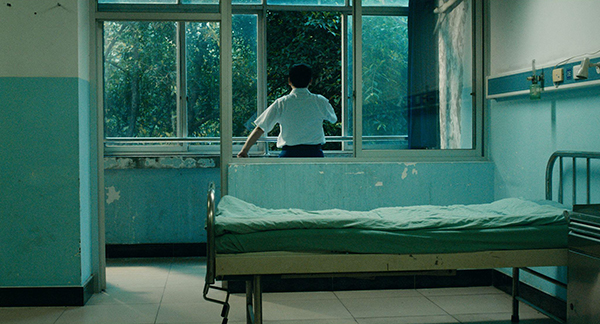
UN CERTAIN REGARD RENDEZ-VOUS – Fantasia by Wang Chao

Wang Chao is in the Official Selection for the second time with Fantasia, which looks at the difficulty of living in China today. The Chinese director returns eight years after winning the Un Certain Regard award for Luxury Car. Interview.
Tell us about the origins of Fantasia.
I started to write the script for Fantasia (the original title of which was Father is Ill) after filming The Orphan of Anyang in 2003. Ten years have passed and yet there has been no significant improvement in the living and working conditions of the Chinese working class. This is why today I still want to tell the story of these people. Furthermore, the universal human suffering of facing death and the ability to psychologically overcome a tragedy are recurrent themes in my previous films. In addition, this thematic continuity is the main reason I made this film ten years later. Before and particularly during filming I made a number of changes and important improvements to the script, in order to create a real divide between the surrealism and the meaning of psychological factors, and the realism of an austere environment.
Still from the film Fantasia © RR
Do you have any stories or anecdotes to tell us about the filming?
Fantasia was filmed in Chongqing. Chongqing is an industrial metropolis in the south-west China through which the Yangtze river flows. A centre of industry and arms production under Mao, the city has recently been the focus of much attention due to the political scandal surrounding Bo XiLai. In the city, most of the factories from the Maoist period have gone bankrupt and only a few have managed to struggle on. The living conditions of unemployed workers is the city’s main problem. Furthermore, China’s rapid economic development has also led to a huge disparity of income in Chongqing, as well as elsewhere. The film’s key scene illustrating my feeling shows the unoccupied residential towers along the river contrasting with the chimneys of factoires on the point of closing down located on the opposite bank.
Also, in the film there is a long passage where we see the son following his father in the street. I directed this scene like a documentary. It was really difficult to to film this passage in this very noisy city. I remember being very annnoyed and disagreeable during the filming of this sequence.
Could you tell us about your next project?
I am currently in post-production on my next project: Looking for Rohmer. It’s my first time directing a French film. it was filmed in four different locations: in Beijing, Tibet, Paris and in Provence. It’s a sentimental story about life and death between a French homosexual and a Chinese heterosexual.
What are your cinematographic influences?
I am influenced by arthouse cinema. There are several films that I like, but the following four have had a particular influence on me: The Silence by Ingmar Bergman, Journal d’un curé de campagne (Diary of a Country Priest) by Robert Bresson, Voyage en Italie (Journey to Italy) by Roberto Rossellini and L’Avventura by Michelangelo Antonioni.
SCREENINGS
Wednesday 21st May / Debussy Theatre / 11.30 a.m. – 5.p.m.
>> Access the interactive calendar



